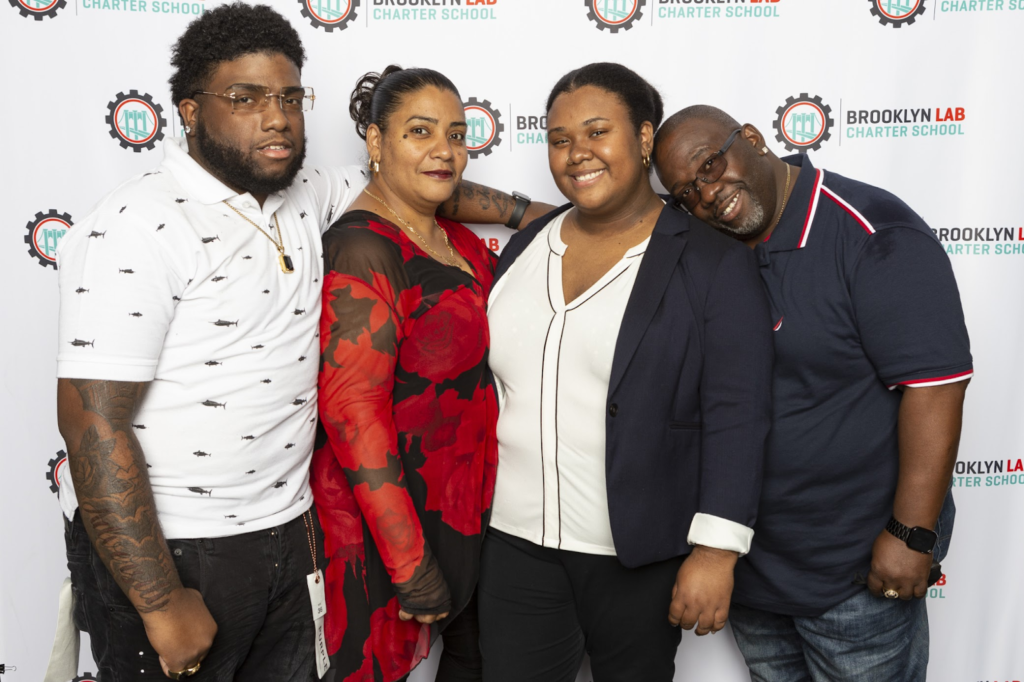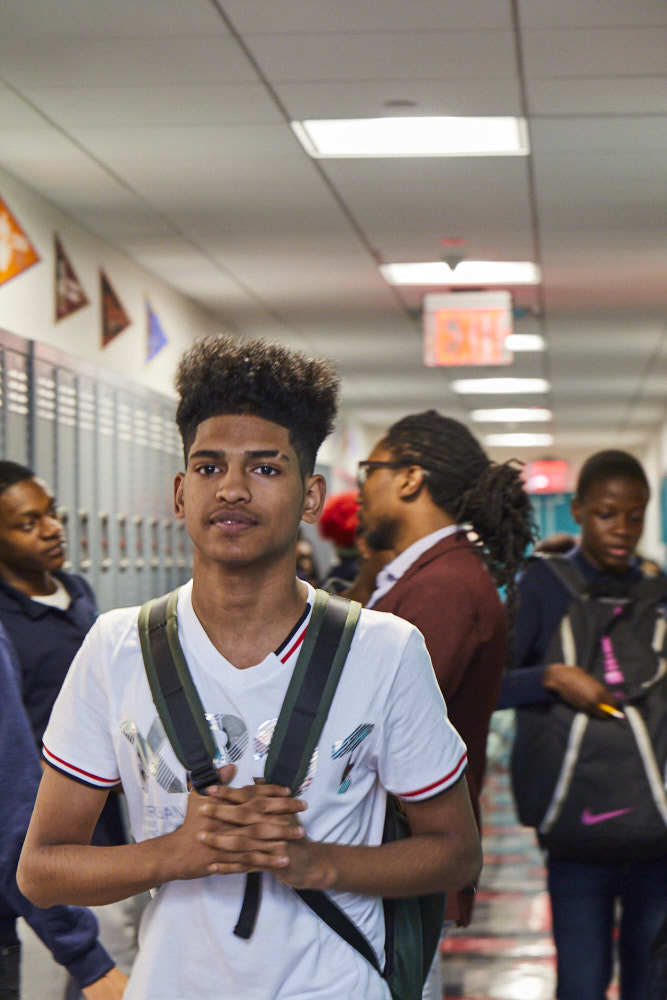Reimagining Charter School Authorizing to Focus on Student Learning and Development
Key Points
-
One of the areas that’s ripe for improving public charter schools is the authorization process.
-
There are seven things authorization should focus on to meet the shared goal of improving student learning and development.

We have been reflecting on the impacts of the COVID-19 pandemic across school communities and have noticed two things about our public education system: It’s full of caring, empathetic professionals willing to put in Herculean efforts to meet the needs of students and families. At the same time, bureaucracy often stands in the way of progress. It prevents schools from meeting the evolving needs of family or unlocking the potential of students.
The bureaucratic process that has created the biggest headaches and heartaches for public charter school communities is authorization, which too often distorts priorities and fails to focus on what’s most important: student learning and development.
Brooklyn Laboratory Charter Schools—which aims to serve the needs of our community’s most marginalized students, including students who live with a disability, students who come from low-income families, and students of color—shares the same stated goals as many of our state policymakers: to provide the kind of learning and development experience that helps all students succeed. Despite these shared aspirations, when our schools and regulators fight over what our families and students need and deserve, students are the ones who suffer the most.
Today, the National Alliance for Public Charter Schools celebrates public education leaders who are making a difference in their communities. As a 2022 Changemaker Award recipient, Eric reached out to Tom to begin to consider how might we better support educators to positively impact the lives of their school community, bring “innovation and creativity to solve problems”, and amplify the voices of students and educators.
When we think about improving public charter schools to meet the needs of our students at LAB—and the 3 million students at charter schools across the country—one of the areas that’s ripe for improvement is the authorization process.
There are seven things we believe authorization should focus on to meet the shared goal of improving student learning and development.
1. Encourage a future-ready student performance framework.
For 20 years, schools have been updating their learning goals to reflect the knowledge, skills, and dispositions critical to success in college, careers, and life. Basic literacy and numeracy skills remain critical but insufficient for future-ready students and communities. The pandemic was a reminder of the importance of whole learner outcomes, including self awareness, self-management, social awareness, and relationship skills.
Too often, authorizer performance frameworks are fixated on foundational literacy and numeracy skills, and lack a compelling architecture to enable a broader vision of student success.
That broader vision has been championed by leading authorities in American education policy for decades. In his seminal book College Knowledge, David Conley outlined what students need to know and be able to do to succeed in college and careers: including managing time and learning, conducting research, problem solving strategies, career awareness, and self-advocacy. His “Think, Know, Act, Go” outcome framework was foundational for Summit Learning and MyWays from NGLC. Inspired by these and XQ Learner Goals, Brooklyn LAB and other schools around the country are embraced a comprehensive student performance framework.
Bb Ntsakey, LAB’s Senior Director of Academics, echoes his school’s call for “whole-adolescent” and strength-based approaches that incorporate the latest research on learning and brain development to inform systems like IEPs and transcripts.
Recommendation for authorizers: Differentiate authorizing approaches based on context, student population, learning model, and outcome framework. Schools with a track record of improvement and success against a comprehensive outcome framework should have access to expedited renewal and eased process to scale.
We must rethink authorizing together, to meet this moment and put our students first.
Tom Vander Ark and Eric Tucker
2. Embrace assessment for learning.
Assessments can play a crucial role in the way charter schools deliver their promise, advance student success, and guide individual learning. Smart, well-planned assessments can inform and enhance the way students learn, helping educators ensure they’re serving all learners and meeting students where they’re at.
The renowned educator (and namesake of our school) Dr. Edmund W. Gordon has talked about the need to develop strategies that both inform and enable learning and development—wherever it’s occurring. “Traditionally, assessment has assumed that you have a pool of developed resources, and the assessment process is trying to show them,” Gordon said. “I’m trying to push assessment in the direction not of discovering talent, but of developing it.” For this to happen, Gordon observes, “assessments must fully represent the competencies that the increasingly complex and changing world demands. The best assessments can accelerate the acquisition of these competencies if they guide the actions of teachers and enable students to gauge their progress.”
Historically, policymakers have used what Learning Policy Institute President Linda Darling-Hammond calls “punitive sanctions,” or high-stakes consequences for schools, teachers, and even students. But this has a detrimental effect on the quality of education. “We need to move to a form of assessment and a companion form of accountability that will support children in their learning, rather than undermining their learning,” she said.
Assessments can also be a useful tool in holding charter schools accountable for upholding the highest educational goals, and helping them reach those goals. But in order to do that, authorizers must embrace how measurement of learning can be used to contribute to the cultivation of ability.
Recommendation for authorizers: Incentivize local assessment plans that aim for schools to use evidence and data to serve, inform, and enhance teaching and learning processes and outcomes.
3. Privilege the needs of all learners, including those who live with disabilities.
Charter schools can be leaders in special education.
Together with a coalition of civil rights groups, disability advocacy organizations, and others, LAB co-founded the Educating All Learners Alliance because we know charter schools can be more nimble and innovative, creating new approaches to serving historically disadvantaged students.
One of the nation’s leading education lawyers, Paul O’Neill, of the Center for Learner Equity, urges schools to both acknowledge the “smallness and the meanness and the narrowness of the structure that we consider to be the standard,” and to respond with the kind of empathy, compassion, and commitment to human dignity that come from a place of deep care. He asks, “Who deserves less than everything we can do for them?”
Unfortunately, public charter schools sometimes get penalized by authorizers for disrupting the broken model. We need charter authorization to incentivize academic growth and the quality of programs, interventions, and services focused on meeting the needs of students who learn and develop differently. Charters should be encouraged to defend and promote the civil and human rights of underdeveloped learners, rather than incentivized to avoid serving young people whose abilities have been disproportionately underdeveloped.
Recommendation for authorizers: Insist that all public charter schools demonstrate a commitment to ensuring that students with disabilities have equitable access to quality educational options. Improve the health of the charter sector by embracing performance frameworks that reward schools for effectively serving Black, Latino, and low-income students with disabilities.

4. Empower diverse, talented educators and focus school talent systems on student success.
Schools across the country are facing a shortage of teachers, especially teachers who are Black or Brown. But charter schools are in a unique position to grow their own teacher pipelines by using residency programs, like the one we have at Brooklyn LAB.
Study after study shows that students of color thrive when their teachers look like them and have shared experiences. According to Pathways Alliance, which advocates for teacher diversity, it’s more important than ever to build sustainable education preparation programs. Doing this, according to the Teaching Profession Playbook, requires investments, which public charter schools are prepared to make. As Monica Martinez, director of strategic initiatives at the Learning Policy Institute, points out: “There are so many initiatives right now that are opening the door for a more diverse workforce.”
Unfortunately, the authorization process is holding back this momentum. Too often, state education departments and authorizers take steps that restrain the progress of emerging educators of color and exclude aspiring teachers from contributing.
Recommendation for authorizers: Encourage charter schools to prioritize the cultivation of robust talent pipelines that include educators of color. Support charter school efforts to create long-term solutions to staffing shortages that create a more diverse workforce. Consider certification expectations within the context of creating space for teams of educators to specialize to meet the needs of students. Provide educators with better ways to enter the profession, develop professionally, and advance.
5. Partner effectively and engage equitably with families and communities.
Spending the time to get to know students and their families deeply over the years helps charter schools pivot quickly when the moment calls for it—whether it’s shifting to a remote-learning format or transitioning to an in-person learning model.
“The most important things students need to learn and thrive in schools are relationships,” said Shatoya Ward, principal of Englewood Campus Purdue Polytechnic High School.
These connections help students succeed. “This kind of community-building makes our work especially rewarding,” said Jonathan Flynn, director of family and community engagement and public affairs at Brooklyn LAB. “We listen to our families’ needs and serve them in the best way we know how. It’s important because it feels like we’re working on something bigger than ourselves. We’re investing in the future.”
Authorizing needs to prioritize community stakeholder voice and responsiveness to family needs. Stakeholder input, voice, and participation must be authentically engaged in an ongoing, robust manner.
“This is an important moment where schools can intentionally build trust with families and enter into true partnerships with parents,” said Bibb Hubbard, founder and president of Learning Heroes.
Recommendations for authorizers: Create frameworks and practices that support work to strengthen families, communities, and schools to advance children’s learning and development.
6. Safeguard school community health and well-being.
Charter schools must continually improve their approach to the physical and mental well-being of students, staff, and families, especially since the pandemic upended life for so many.
This, as Brooklyn LAB chief financial officer Sheryl Gomez points out, is essential. “Charter schools are well suited to creating robust plans that are equitable, and focus on those students who are most vulnerable, with a level of specificity and credibility that is worthy of the families and children we serve,” she explained.
“The safety of our students and those who support them has to be our No. 1 priority,” said Marla Ucelli-Kashyap, senior director of educational issues for the American Federation of Teachers.
Recommendation for authorizers: As a component of renewal decisions, encourage schools to focus on investments that safeguard the health, safety, and well-being of school communities. Reward schools that prepare for learning options that meet the needs of all students in the face of uncertainty and volatility. Prepare for health and safety as non-negotiables, in the face of uncertainty and ambiguity.
7. Leverage engaged school boards.
The final way authorizers can support charter schools to create the education environment all students deserve is to insist boards take responsibility for students achieving jaw-dropping academic growth, and regularly measure progress toward school goals.
Charter schools need strong, engaged school boards to build bridges within the community and between families, businesses, government, nonprofits, and other schools. “At their best, charter boards govern to fulfill the mission of the school, and the promise of scholars learning and thriving,” said Carrie Irving, chief executive officer of Education Board Partners.
Under the current system, however, authorizers sometimes discount and fail to benefit from the powerful force that boards can play to improve school quality and accountability.
Recommendation for authorizers: Hold boards accountable to provide competent stewardship and oversight while investing in board effectiveness and preparation for a rapidly changing, uncertain world.
A Moment to Rethink Authorizing
As communities prepare public schools to rise to the challenge of the uncertainty and volatility ahead, this is the moment to rethink authorizing. As charter school leaders and education policymakers, we must put aside adult resentment and priorities, and focus on our shared imperative to secure student success.
Charter schools were initially envisioned as nimble and adaptable, with the potential to understand how to foster resilience during tough times. School communities now face challenges such as health pandemics and the increasingly perilous weather disasters that result from climate change. Unlike slower-moving bureaucracies, public schools must speed up the pace of improvement by surfacing the most promising prospective solutions for emerging challenges.
This makes charter schools ideally suited to embrace change, which is necessary for progress. As author John Seely Brown has written: “In a world of constant change, entrepreneurial learners must be willing to regrind the conceptual lenses with which they make sense of the world.”
This also needs to happen when it comes to authorizing.
It’s on us, as public school leaders and policymakers. We must rethink authorizing together, to meet this moment and put our students first.

Tom Vander Ark




0 Comments
Leave a Comment
Your email address will not be published. All fields are required.